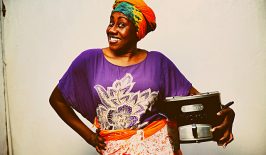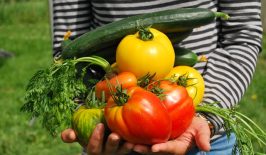The World Health Organization reports that around three billion people cook and heat their homes with open flames, primarily using biomass fuels — wood, cow dung or agricultural waste — and coal. It is estimated that around four million people each year die from diseases and conditions caused by household air pollution created as a result of solid fuel burning. Furthermore, half of all deaths of children under five can be traced to pneumonia caused by pollutants within their living environment.
These statistics are certainly not insignificant, and makes air pollution in the home a far more prolific killer than some better known conditions. For comparative purposes, one million people died as a result of AIDS in 2016. Looking at these figures, one wonders, “why haven’t I heard of this problem before? And what can we do to help?” The answer: get active. This is exactly the aim of the charitable initiative, RecyCoal, which is itself part of the Enactus Aachen association.
What is “RecyCoal”?
RecyCoal operates via a system of pyrolysis, in which raw municipal or agricultural waste is transformed into a kind of coal that can burned more safely than traditional fuels. Here’s how pyrolysis works:
First, crushed raw flammable material is placed into a special barrel. This material is then lit and burned to a small extent in order to generate the heat needed to begin the process. After this, the barrel is sealed airtight, allowing the pyrolysis process to begin. The harmful gases produced are subsequently flared off with an afterburner – reducing emissions.
The result of this thermal decomposition process is a fine coal, which can then be combined with a binder agent and pressed into briquettes. These briquettes are generally easier to manage and store than traditional fuels, while also producing less harmful emissions. Women and children are particularly expected to benefit from this new system, as they generally spend more time in the household than men.

However, the advantages do not end there. As well as reducing the health burden on families, RecyCoal could also help reduce the burden on the environment. As an alternative to wood, RecyCoal makes a direct contribution to environmental and forest conservation. What’s more, the briquettes actually have a significantly higher calorific value compared to wood, meaning they are more efficient as a heat source. This in turn also reduces the burden on women, who traditionally take on the tasks of fuel gathering for heating and cooking.
Additionally, families can produce these briquettes on their own, creating a tradable resource that could free them from fluctuations in market prices for traditional combustible materials. This process could also contribute to the development of more circular economies which can help potentially protect the environment and reduce armed conflict.
So, that sounds great, but what happens next?
In the summer of 2017, the founders of RecyCoal tested and optimised their pyrolysis system — which is roughly similar to a regular fire barrel — taking into account the realities and needs of Kigali, the capital of Rwanda. In 2018, the system will initially be implemented and distributed as a part of a pilot project in Kigali.
The long-term success of RecyCoal will likely depend on whether the new briquettes sell well at market. RecyCoal itself is a non-profit organization and derives no income from their sales, instead they aim to train the staffs of farming cooperatives to use the burners effectively, allowing them to become more self-sufficient.
According to RecyCoal, the initial investment cost of a pyrolysis burner can be covered after only four months, with the briquettes produced being sold for around 27 EUR a month — if the burner is fired at least ten times. Considering the average monthly income in Rwanda is around 50 EUR, RecyCoal briquettes could become a significant form of additional income.
However, RecyCoal is not the only initiative to tackle this concern. In previous years we have also heard about BURN, a project that utilises special ‘Jikokoa’ stoves to reduce pollution. Since 2013, BURN claims to have sold over 340,000 stoves, changing the lives of 1.7 million people in Sub-Saharan Africa, and collectively saving them 77 million USD.
To find out more about the RecyCoal project, check out the video below:
This article is a translation by Mark Newton of the original which first appeared on RESET’s German-language site.






